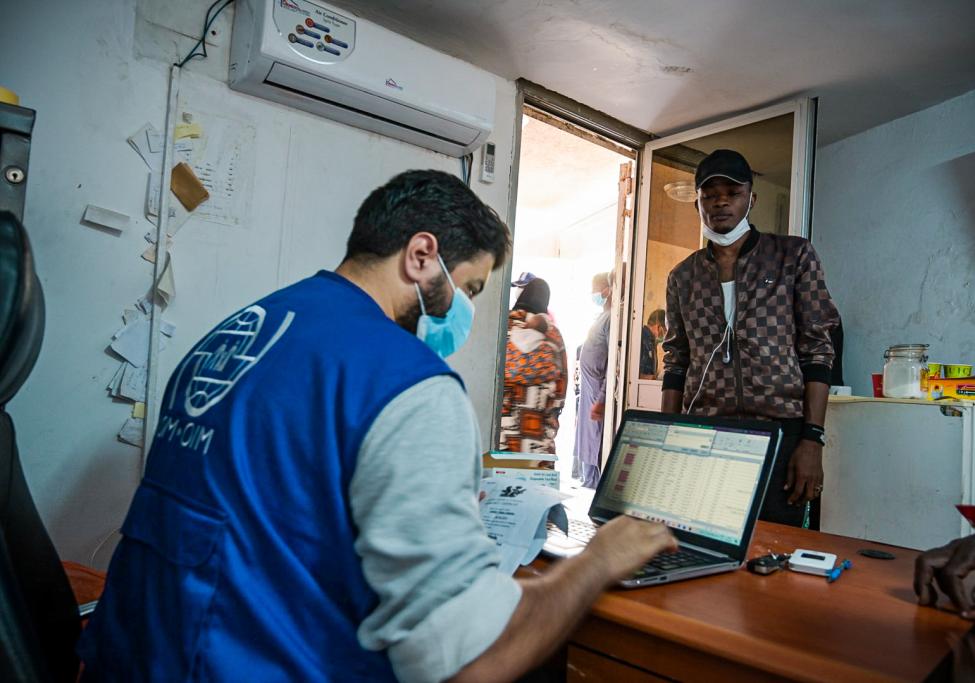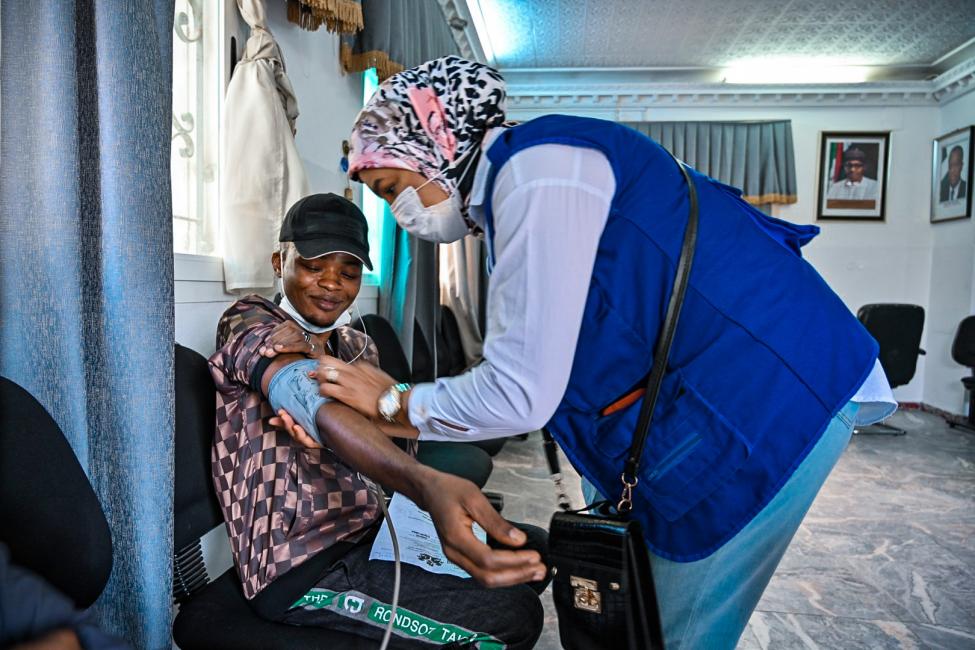-
Who We Are
WHO WE AREThe International Organization for Migration (IOM) is part of the United Nations System as the leading inter-governmental organization promoting since 1951 humane and orderly migration for the benefit of all, with 175 member states and a presence in over 100 countries. IOM has had a presence in Libya since 2006.
About
About
IOM Global
IOM Global
-
Our Work
Our WorkAs the leading inter-governmental organization promoting humane and orderly migration, IOM plays a key role to support the achievement of the 2030 Agenda through different areas of intervention that connect both humanitarian assistance and sustainable development. Across Libya, IOM provides a comprehensive response to the humanitarian needs of migrants, internally displaced persons, returnees and host communities.
Cross-cutting (Global)
Cross-cutting (Global)
- Data and Resources
- Take Action
- 2030 Agenda
On 2 November, 34-year-old Nigerian migrant Jamilu Yusef voluntarily boarded a flight from Mitiga airport in Tripoli headed to Lagos, Nigeria. He was one of 162 migrants (98 women, 28 men and 36 children) onboard, including 14 migrants with medical conditions, returning to Nigeria through IOM’s Voluntary Humanitarian Return programme.
Jamilu started his journey to Libya after losing both his parents in 2019. His father was allegedly murdered and not long after his mother died of an illness. The political situation in Nigeria was unstable and Jamilu was the sole provider for his three younger siblings. “To be honest, I was barely making enough money and I wasn't always able to provide my mother's medication,” Jamilu Yusef said. “It was only a few weeks later [after my father’s death] that my mother passed away. Then I was responsible for the whole household. That's when I decided to come to Libya.”
Like many migrants, Jamilu took the dangerous route from Nigeria to the city of Agadez in Niger, before travelling to Sabha in southern Libya. “I borrowed money so I could pay the 1,000 Libyan dinars commission and travelled for four days through the Libyan desert, jammed in the back of a small Hilux with 37 other migrants,” he explained. “Sometimes I would fall off the Hilux and have to run to get back on. The journey was tough.”
For a year, Jamilu worked in Sabha as a tailor. “While living in Sabha, I faced many challenges. Armed groups would often take my hard-earned money. I will never forget the time when masked people raided my house. They took everything from me. They took the money I had saved to send home to my siblings, they took my phone and when I tried to get my belongings back, they beat me and threatened to kill me. I felt completely alone. I decided then that I would move to Tripoli."
In Tripoli, Jamila was barely able to make enough money to send back to his family and as the conflict worsened, he began to fear for his life. “Even though it was very difficult at times, I had no choice but to continue,” he said. “Before coming to Libya, no one warned me about the random shootings that happen here. I was terrified to lose my life. One night, I was told my friend had died in a shooting. I realized it could've been me.”
After two years in Tripoli, Jamilu received the news that his brother was ill and decided to return to Nigeria. “I have to go back to take care of him,” he said two days before the flight. “There's no use in being here if I can't take proper care of my family. I decided to come to Libya because my friend told me that life was better here. I wish I knew the truth; in reality, it's dangerous.”
For many migrants the VHR programme is critical for those who want to leave Libya and return home in a safe, legal and dignified manner and rebuild their lives. On arrival, returned migrants are assisted with a tailored reintegration plan to address their needs, such as support in capacity-building, medical/mental and psychosocial support or the establishment of income-generating activity.
Since 2015, more than 16,000 Nigerian migrants have returned through the VHR programme, which is funded under the EU-IOM Joint Initiative for Migrant Protection and Reintegration and through the Italian Ministry of Foreign Affair's Migration Fund.


